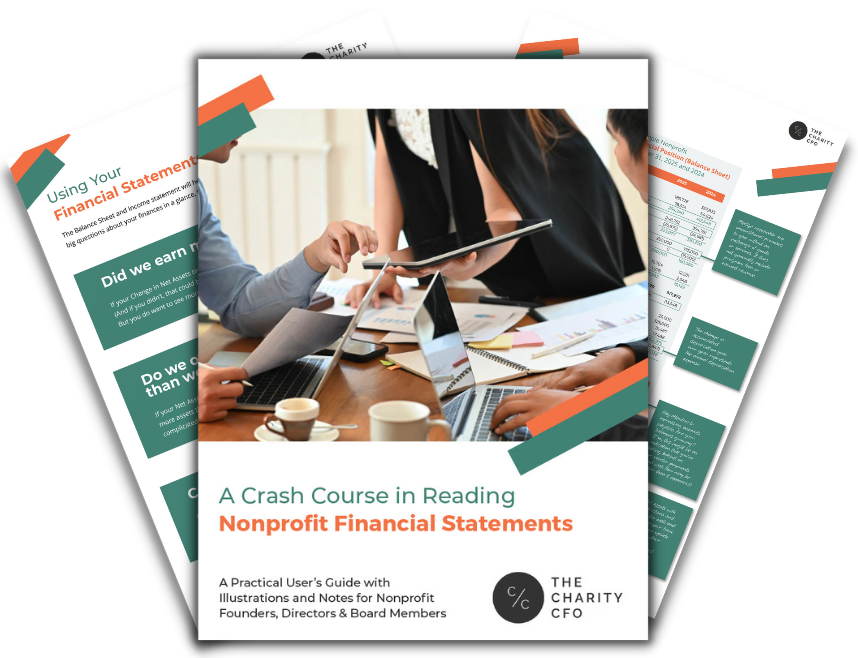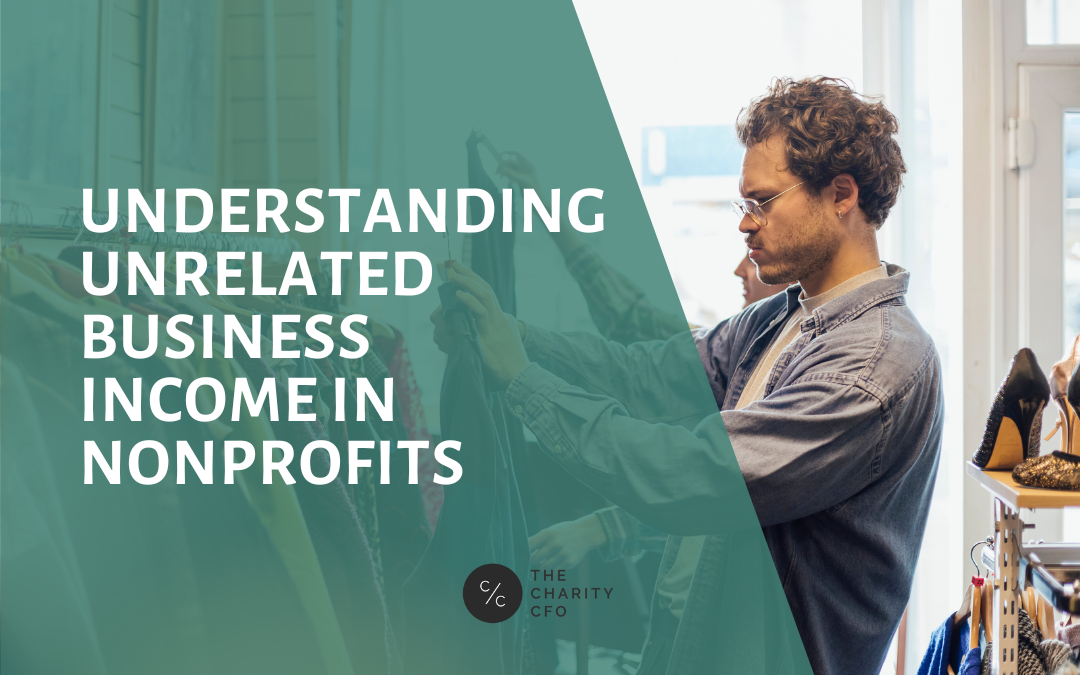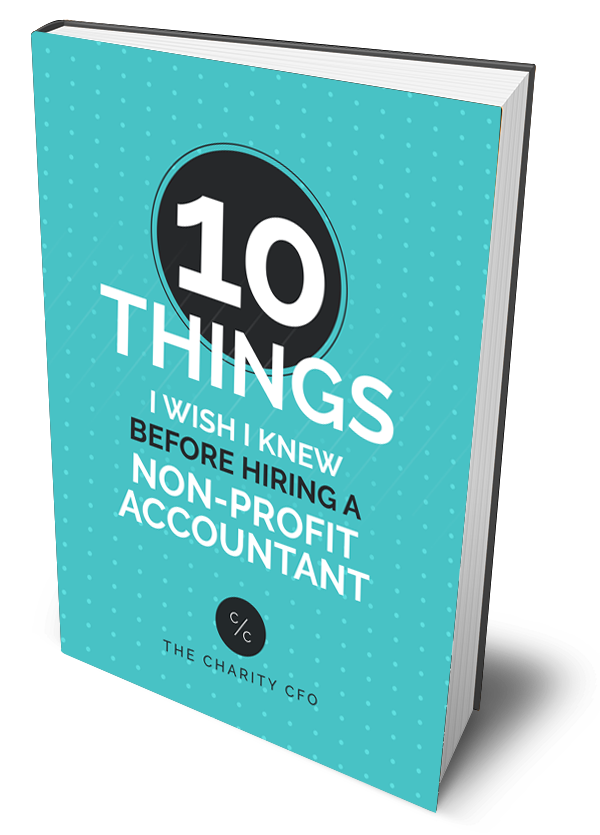If you know only one thing about 501(c)(3) nonprofit organizations, you probably know that they don’t pay federal taxes on their income.
But what if I told you that’s not always true?
It’s true that due to their uniquely valuable societal contributions, such as charitable actions or educational priorities, nonprofits receive tax exemption for income from activities substantially related to their primary purpose.
However, as detailed in Publication 598 of the Internal Revenue Service, income not directly related to their declared charitable purpose is subject to federal taxation. This is called the unrelated business income tax, or UBIT.
So how do you know if your nonprofit organization has taxable unrelated business income?
We’ll review the core principles of unrelated business income tax (UBIT) rules below, along with examples of income subject to taxation, to help you understand what it is and whether or not it applies to your organization.
What is Unrelated Business Income Tax (UBIT)?
Both federal tax exemption and the eligibility to receive tax-deductible contributions help your nonprofit achieve its charitable goals. But while these benefits have a positive impact on society, they can pose a temptation for some organizations looking to take financial advantage for personal gain.
As a result, Congress implemented the UBIT in 1950 to eliminate the unfair advantage tax exemption gave to nonprofits competing against for-profit entities in the same sector. The tax limits the advantage of nonprofits to their specified charitable purpose and prevents them from exploiting their benefits in the commercial sector.
For example, the UBIT prevents an entity such as a church from using its exempt status to open a store purely for profit with no charitable purpose. This is true even if the church uses those funds to fund programs in the community.
It is not, however, prohibited for your exempt organization to earn unrelated business income. If you receive gross income from an unrelated business reaching $1,000 or more, you simply need to complete and submit IRS Form 990-T and pay the required taxes.
If your organization expects it will need to pay $500 or more in tax for the year, then you must pay a quarterly estimated tax. The Form 990-W helps determine the required amount of estimated tax to pay.
Form 990-T and Form 990-W are in addition to your organization’s annual information return (Form 990, Form 990-EZ, or Form 990-PF).
IRS UBIT Requirements
UBIT rules apply to most organizations that gain tax exemption from section 501(a) of the Internal Revenue Code (IRC). The three main criteria for your tax-exempt entity’s activity to be considered an unrelated business are as follows:
- Your activity is a trade or business that produces income via the selling of goods or services. Even if these activities occur under a greater umbrella of the organization’s tax-exempt purposes, they maintain their identity as unrelated trades or businesses as long as they generate gross incomes from distributing or producing goods or services.
- The activity is regularly carried on, meaning that the organization pursues them with frequency and continuity, similarly to the manner in which non-exempt organizations pursue comparable commercial activities.
- The activity is not substantially related to furthering the organization’s exempt, charitable purpose.
Special Cases & Exceptions
Most tax-exempt organizations must follow the UBIT requirements, including those in social welfare, advocacy, trade, veteran groups, labor organizations, and employee benefits.
However, some special cases fall under modifications, exclusions, or exceptions to unrelated business income, such as:
✔️ Volunteer labor
✔️ Convenience of members
✔️ Sale of donated merchandise or in-kind gifts
✔️ Corporations organized under Acts of Congress and are instrumentalities of the United States
✔️ Some charitable trusts not subject to private foundation taxes
✔️ Dividends
✔️ Interest
✔️ Certain investment income
✔️ Royalties
✔️ Certain rental income
✔️ Certain research activity income
✔️ Gains or losses from property disposition
✔️ Certain bingo games
It can get a bit complicated, but the Form 990-T Instructions give you more specifics on what constitutes an exception and what does not.
What Is Considered Excessive Unrelated Business Income?
Although nonprofits can earn profits from unrelated business activities, these profits can only make up a certain percentage of the nonprofit’s overall income.
This limit is not clearly defined, however. Instead, it is up to the IRS to determine if your percentage of total income coming from UBI is too high. In cases where the IRS is evaluating unrelated business income to determine adequacy, it considers various factors specific to the situation at hand.
Examples of Taxable and Non-Taxable Business Income
Example 1: Selling food and beverages
Related business income: If an organization sells food and beverages to its members, it would be considered part of the entity’s regular operations to further its purpose. The money earned goes towards paying back the expenses used to obtain the food for its members to work on their mission.
Unrelated business income: If the same organization sells food to non-members regularly to make additional profits without working towards its non-exempt purpose, then the income is unrelated and taxable.
Example 2: Charging for parking
Related business income: If an organization has a parking lot and it charges members to use during working hours, then this income is not taxable. The money earned goes toward paying the lot lease and provides a service to members who use their parked time for furthering the purpose of the organization.
Unrelated business income: However, if the entity decides to take advantage of its non-working hours by regularly opening the lot to non-members to turn a profit, then this income is subject to the UBIT. The money is no longer from and for members and is not necessary for furthering the organization’s purpose.
Example 3: Providing pay-for-entry entertainment
Related business income: Consider an organization such as a church that charges admission for a small fair or arcade in which themed games and activities educate the children of members on the church’s views and purpose. This activity specific to members and to the purpose of the church would not fall under UBIT rules.
Unrelated business income: If the same church ran a general arcade next door open to the public and with no educational aspect, then the resulting income would be subject to the UBIT.
Other forms of income which would be susceptible to the UBIT include proceeds from the liquidation of assets, the sale of resources found on the property of the exempt entity, income from paid advertising in the organization’s newsletter or publications, or the sale of unrelated merchandise to the public.
Each of these examples and those described above involve various factors that, if changed, could change the exempt status of the activity in question.
Not Sure If Your Nonprofit Income Is Taxable Or Not?
You should always consult your legal counsel or a qualified accounting professional before making decisions that could cost you a lot of money down the road.
But as a nonprofit, sometimes it’s not easy to find someone to answer your questions. We frequently hear stories of CPAs that don’t return their nonprofit clients’ phone calls or emails. Often, nonprofits get stuffed at the bottom of the pile.
If you’re tired of being the last priority of the financial professionals in your life, consider outsourcing your bookkeeping and accounting to The Charity CFO. We’ll modernize and optimize your accounting system to get you audit-ready financial reports every month.
And our team of former nonprofit CFOs and auditors are available to answer all your most challenging questions about tax liabilities, transparency, compliance, budgeting, and more.
Reach out to us today to see if outsourcing your bookkeeping and accounting can save you time, money, and stress.

Do You Struggle to Make Sense of Your Financial Statements?
Get our FREE GUIDE to nonprofit financial reports, featuring illustrations, annotations, and insights to help you better understand your organization's finances.
Get the free guide!






0 Comments